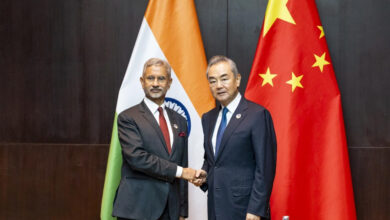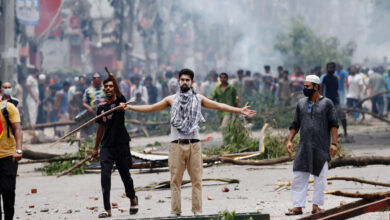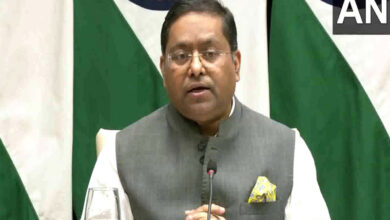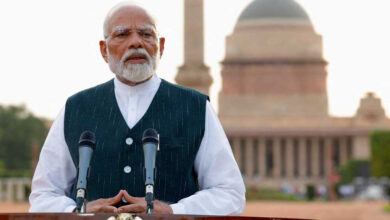Kerala attacks: India police investigate deadly blasts targeting Jehovah’s Witnesses
A man was detained after he posted a video claiming responsibility for the attacks and surrendered to police.

By Cherylann Mollan in Mumbai and Ashraf Padanna in Kerala
BBC News
Police in India are investigating a series of explosions which killed three people at a Jehovah’s Witnesses meeting in the southern state of Kerala.
More than 50 others were injured in the blasts on Sunday at an event held by the Christian-based religious movement near the port city of Kochi (Cochin).
A man was detained after he posted a video claiming responsibility for the attacks and surrendered to police.
Police said they were still trying to verify his confession.
“He is in our custody. He has also presented some pieces of evidence which we are verifying. The investigation is at its preliminary stage,” additional director general of police MR Ajith Kumar told reporters.
The incident took place during a prayer session organised by Jehovah’s Witnesses in the town of Kalamassery, about 10km (six miles) north-east of Kochi. More than 2,000 people were attending the three-day event.
Two women who’d been attending the meeting died on Sunday, while a 12-year-old girl with 95% burns succumbed to her injuries on Monday morning.
Senior police official Shaik Darvesh Saheb said a preliminary investigation indicated that an improvised explosive device (IED) placed inside a tiffin box might have caused the blasts.
Victims receive medical treatment at the Government Medical College hospital in Ernakulam after a series of explosion took place during a Jehovah Witnesses meeting at a convention centre in Kalamassery near the port city of Kochi on October 29, 2023. A suspected bomb blast during a Christian prayer meeting in India’s southern state of Kerala killed one person and wounded 36 others, police said on October 29.
Shortly after the incident, a man named Dominic Martin said he had carried out the attack.
The 48-year-old posted his confession in a Facebook video, which has since been deleted, and handed himself in at a nearby police station.
Mr Martin claimed he was a registered member of the religious group and was angry with its “anti-national” teachings.
But TA Sreekumar, a regional spokesperson for the Jehovah’s Witnesses, denied this and told Reuters news agency that he was unaware if Mr Martin had even been present at the event.
“The explosions occurred seconds after the end of a prayer as part of the day’s event. The first blast took place in the middle of the hall. Seconds later, two more explosions rocked simultaneously on either sides of the hall,” Sreekumar had earlier told local media.
Kerala’s Health Minister Veena George told reporters that 17 people had been admitted to different hospitals after the blasts, 12 of whom were in intensive care.
“Four are critically ill, three of them are on ventilators. Those who are critically ill have burns above 50-60%,” she said.
Chief Minister Pinarayi Vijayan said a 20-member team, led by the additional director general of police, was investigating the incident.
Meanwhile, security has been tightened in Delhi, Mumbai and other cities in the wake of the blasts.
The Jehovah’s Witnesses is a religious movement which believes that traditional Christian churches have deviated from the actual teachings of the Bible and that the destruction of the world is imminent.
The group, which claims to have about 8.7 million followers worldwide and some 60,000 in India, has a strong presence in Kerala and is known for door-to-door evangelism in the state.
In 1986, its followers were backed by India’s Supreme Court which ruled that their children could not be forced to sing the national anthem in schools.
Followers of the movement had argued that their conscience did not permit them to sing the anthem because it would constitute “a form of idolatry and an act of unfaithfulness to their Jehovah”.




